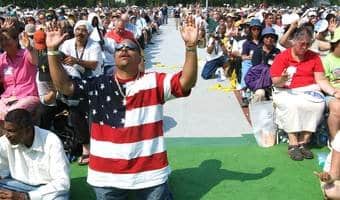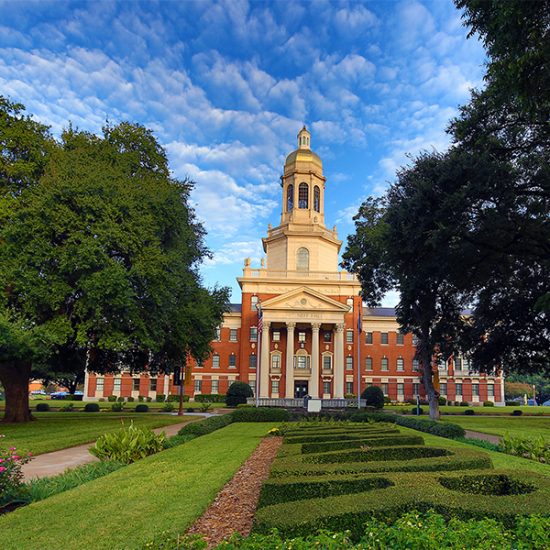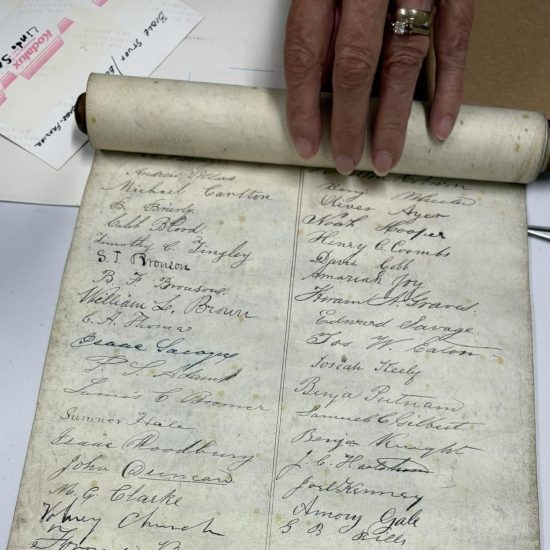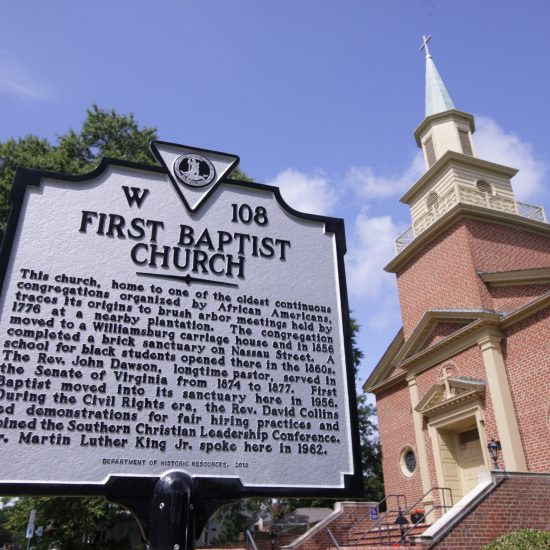Because of their historic commitment to religious liberty and separation of church and state, Baptists have a responsibility to educate their fellow citizens what those concepts mean, church historian Jim Spivey said.
“Separation of church from state does not mean separation of religion from politics. Religious convictions can rarely be separated from social issues or political processes. Otherwise, they are just religious ideals without any action,” said Spivey, senior fellow at the B.H. Carroll Theological Institute.

Darren Valdez of Staten Island, N.Y., prays at evangelist Billy Graham’s 2005 crusade in New York. (RNS FILE PHOTO/Michael Falco)
|
“Individual Christians must remain politically and socially engaged. Pastors must teach and preach prophetically, speaking to those social and political issues that the Bible clearly calls them to address. Churches should be involved in their communities to the degree that they become salt and light concerning social and political issues that affect those communities.”
Spivey noted the role Baptists played in securing the rights of religious liberty protected in the First Amendment as a positive example of how Christians can shape public policy for the common good.
“But the church as an organization must remain separate from the state as an organization,” he urged. “There must be an absolute separation of the two institutions, and the church must never receive funding from the government.
“Churches must maintain this separation for many reasons, but foremost among them is the need to preserve their ability to speak and act prophetically without compromise induced by financial or other gain.”
As a current example, Spivey found fault both with churches that accept government money for faith-based initiatives and with critics who claim churches’ engagement in faith-based social services violates the principle of church/state separation.
“The church has always been involved in faith-based initiatives such as feeding, housing and caring for the poor and homeless. We must not avoid these obligations because we say they are the responsibilities of government. The Bible makes it clear that churches share in this responsibility,” he said.
“On the other hand, it is equally wrong for churches to beg the state to pay them for doing what God provides them the resources to do. It is a fitting expression of Christian citizenship for churches to engage in faith-based initiatives, but it is inappropriate for them to accept state funds to do so.”






